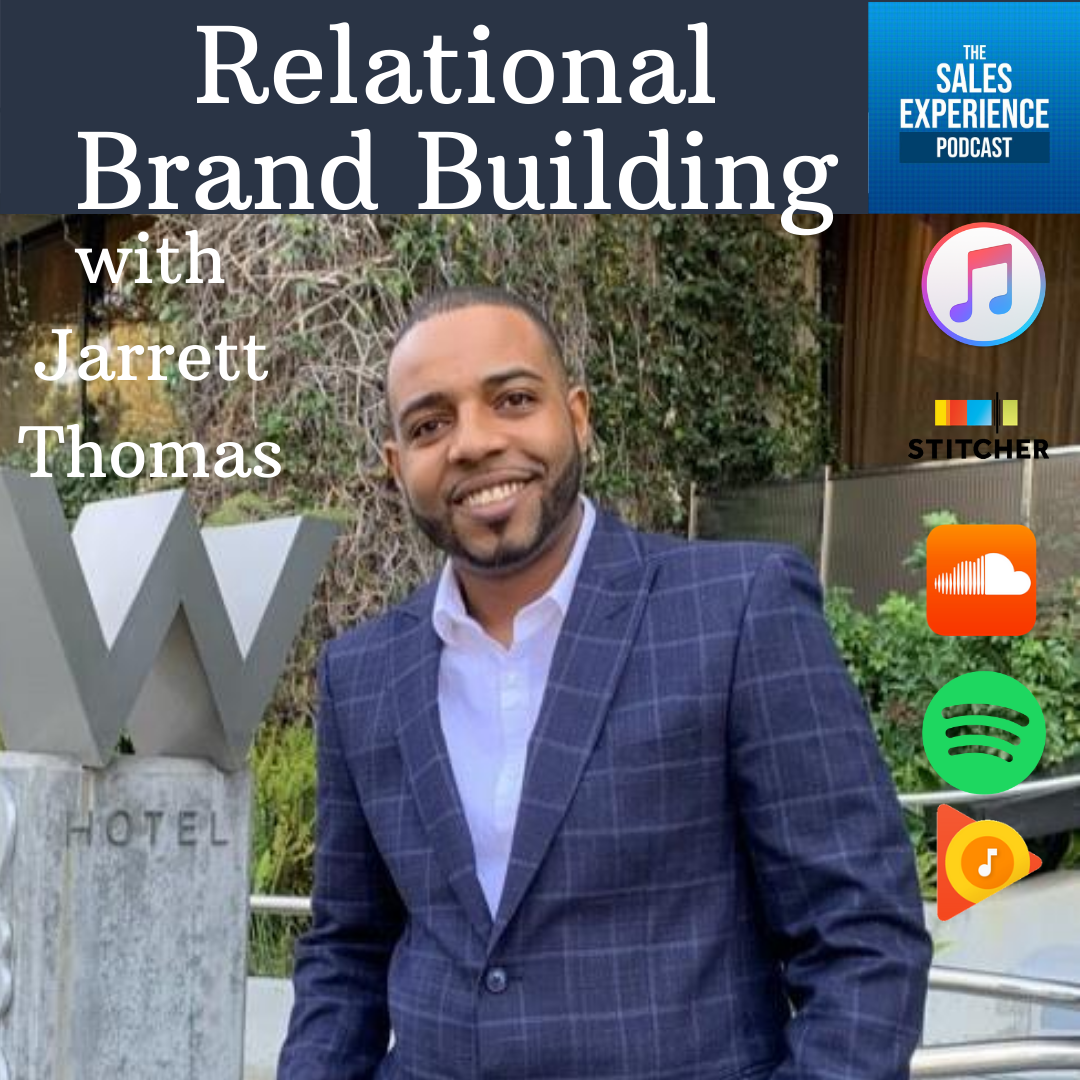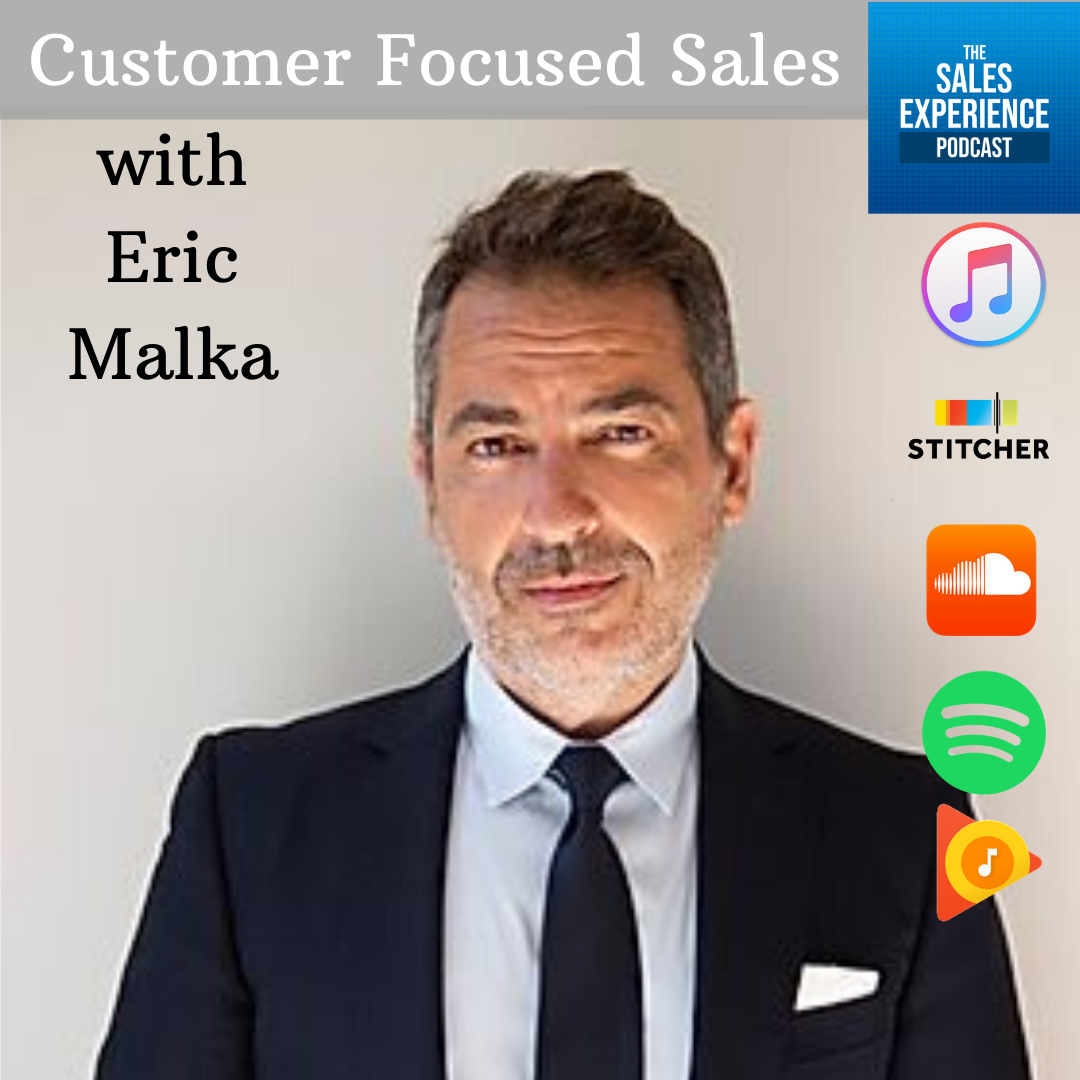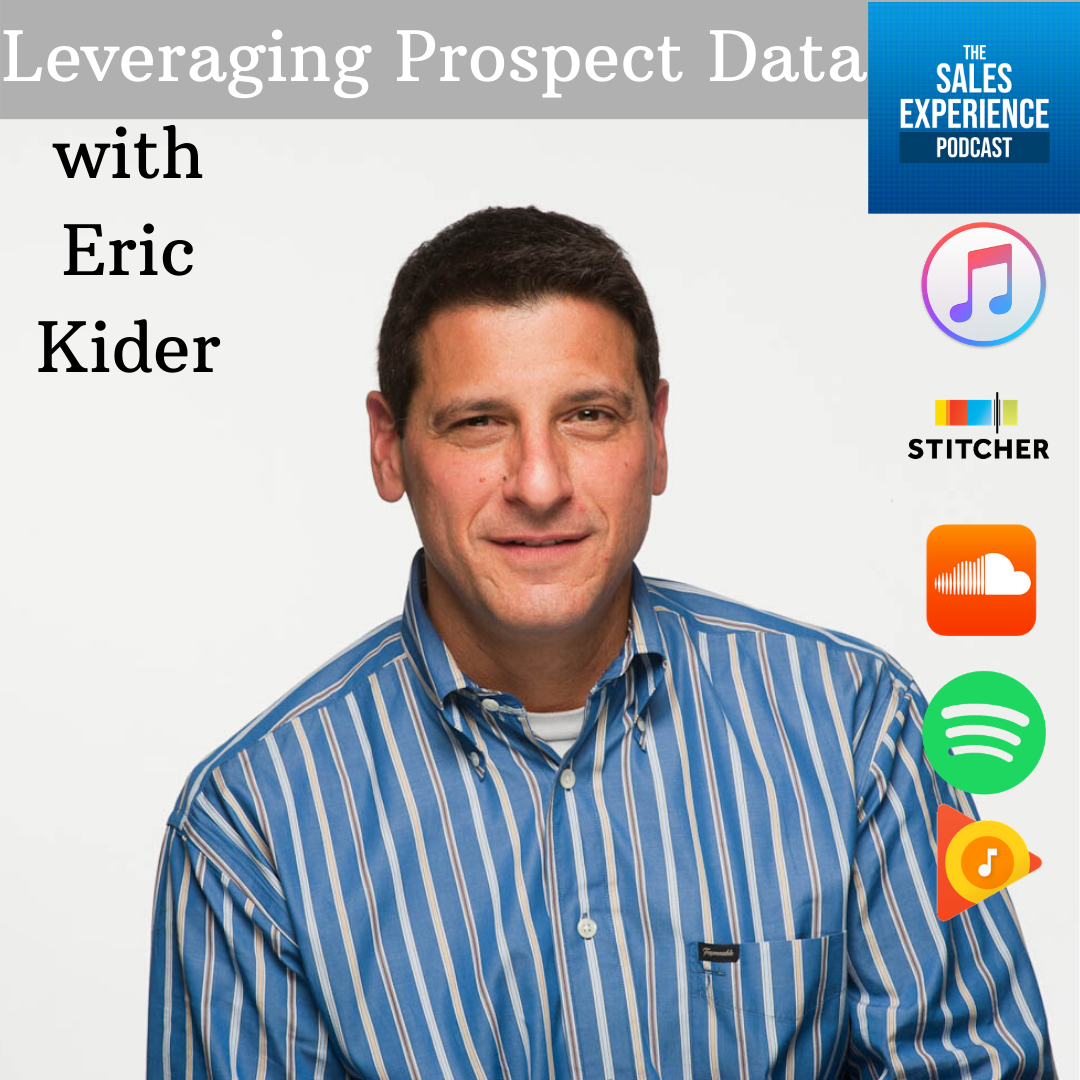Show Notes
Adam Honig, from Spiro.ai is on a mission to get rid of the CRM, especially for sales teams. And this is coming from a guy who spent years as a CRM consultant and expert!
Check out this interesting discussion around why the CRM doesn’t work and what alternatives there are for managing a sales team and a sales pipeline.
Episode highlight:
“One of the big problems of course is CRM is kind of a one size fits all. It doesn’t adapt itself to the working style of the team.”
“Sometimes people tell me that they feel like they’re in a bad relationship with it because all it does is take from them. It doesn’t give anything back.”
Download The Power of Authentic Persuasion ebook
Enroll in the Authentic Persuasion Online Course
Get help with your sales team
Connect with Jason on LinkedIn
Connect with Adam on Linkedin
Adam’s Bio:
Adam is passionate about helping companies make more money using artificial intelligence, and is the driving force behind Spiro’s pioneering new approach: proactive relationship management. As CEO, he is focused on the company’s overall market strategy and vision.
Previously, Adam co-founded a software company which he led through its successful IPO and sale. Afterwards, he founded Innoveer, one of the largest CRM consulting firms, which was successfully acquired by Cloud Sherpas (and then Accenture).
Where to follow Adam:
https://www.linkedin.com/in/adamhonig/
Links:
https://spiro.ai/resources/guide/infographic-not-your-fathers-crm/
https://spiro.ai/resources/guide/proactive-relationship-management/
E212 – Transcript
Jason: Welcome to the sales experience podcast. On today’s episode I have Adam Honig, CEO of spiro.ai. He has founded and led companies to IPO and sales. He’s even run some really big CRM consulting companies and then been a part of those being taken over and sold by the companies and his current venture is with Spiro and it’s helping companies make more money using artificial intelligence and actually to get rid of the CRM which should be a fun conversation. Adam, welcome to the sales experience podcast.
Adam: Thanks Jason. I’m really happy you brought up that getting rid of CRM cause usually if you hear a CRM mentioned in the beginning of a podcast people might want to skip it. So don’t skip it cause we’re all about burning it down, not about making it better. So I just want to put that right away into the conversation.
Jason: I’m glad you did cause it’s funny cause I hadn’t thought about bringing that up but it’s so true. Obviously the place we’re going to start with, but you know who knows where I was going to go is the fundamental thing that most sales people do not like CRM. They don’t use a CRM. They don’t want to put the data in. Now I know some professional salespeople who, true professionals where they use a CRM, they enter everything. They know the reports, they know their numbers. They’re using that as a powerful tool because they have that operational side. But yeah, I’m glad you brought that up because if somebody is listening, especially if it’s a salesperson or a manager, they might think, Oh my gosh, this is going to be about CRMs and I don’t want to listen to this because I’m tired of being told that I need to use my CRM.
Adam: I mentioned CRM to people. Usually I get a very funny reaction. Sometimes people tell me that they feel like they’re in a bad relationship with it because all it does is take from them. It doesn’t give anything back. Then there’s other people. I was actually at a conference and we, I asked the crowd of salespeople how much they like their CRM and some guy threw something at me. So you know, there’s like a wide range of people who go all the way from dislike to hate. So you know, you’re sting field to be in. I’ve worked in CRM for about 20 years before starting Spiro and it’s just like, I often draw a graph that shows how much money people spend on something and how much they hate it. And CRM is the top right quadrant.
Jason: They spend the most and they hate it the most.
Adam: They spend the most and they hate it the most. And it, everybody just feels like it’s a necessary evil, but it’s not.
Jason: Versus what’s probably in the whatever quadrant that might be where spends the most but loves it the most. Something like what? A Ferrari or a Lamborghini.
Adam: Yeah, or you know, something like that. Exactly. Or, a fabulous vacation. Like would you have rather have a fabulous vacation in Hawaii or a CRM system that works really well? I mean, you know, I’d say 99 out of a hundred salespeople would choose Hawaii, you know, like whatever.
Jason: Yeah, I think that’s pretty even the people who love CRMs and see the value in them, nobody’s going to pick that.
Adam: I once interviewed a sales leader and I was asking him about CRM cause this comes up a lot for me. And he said, you know, when I interview people for hiring, I ask them how well they do using their CRM. You know, and I never hire the ones that tell me that they do a good job with it because either they’re lying or they’re terrible salespeople. And I was like, Whoa, that’s one of extreme but well.
Jason: But I’ll tell you. So like having managed sales managers and having, you know, as a consultant and dealing with companies where they’re either struggling or failing with their CRM usage or they’re even on spreadsheets, which is even more of a mess. That’s an interesting question that that person you’re talking to asks, because I also know that there’s a lot of people out there who use a CRM a lot, are diligent with their notes and their updates as a way to procrastinate and stall from actually doing sales activities.
Adam: Right? So it’s, it’s you’re sort of in a double bind. So my last company was a very large consulting firm. We worked with like MetLife and Charles Schwab and people like that, helping them implement CRM, Salesforce, Oracle, whatever. And we did this project for a company called Abbott Lab where we analyzed how well their salespeople were doing and how much data they put into Salesforce in this case. And you know, of course there were some exceptions, but it was pretty much the inverse. The more they put in, the worst they were at sales. And so I don’t know if that’s a causal relation, meaning that it caused them to do less or not, or what you said it was just a way of them filling their time. But yeah, it’s, it’s, it’s a little bit insidious, the whole CRM thing.
Jason: And I think it really is, there’s a happy medium. There’s the people who can put data in and be effective and do it quickly and use it as a tool and you know, and optimize that. But yeah, I mean I, I’ve seen those people who they’re really detailed at the CRM and, from a management perspective I actually have to tell them, spend less time on your notes and your updates and actually do more phone calls. Right? Like their number of phone calls are low because they’re doing this and it’s really a procrastination method.
Adam: Well one of the big problems of course is CRM is kind of a one size fits all. It doesn’t adapt itself to the working style of the team. And so you might have some team members who are really good at taking notes and striking the balance. You might have others that don’t know how to manage their time and it just doesn’t help it cause it’s really inflexible.
Jason: How much do you think, cause this conversation is not just going to be about CRMs and why nobody uses them. It might end up mostly being about that. But you know, the question I have is more on the the nature versus nurture, and this is obviously for salespeople as thing managers, owners, but it’s more of the like are the people who generally go into sales, the kind of people who don’t want to have to do CRM stuff cause they just want to sell? Or is it that CRMs like which one is it the chicken or the egg? Right, like of why there’s no data going in.
Adam: I believe that great salespeople are very in the moment they’re focused on the person or group that they’re talking to. They’re listening really well and they’re trying to be super engaged. And I just find those types of skills and then obviously solutioning to figure out a way to help the prospect or customer and all of those skills or seem orthogonal to the kind of analytic note taking behavior that we would expect from people who are more academically oriented or in the accounting profession or something like that. You know, after a lot of time in the field, I’ve come to believe that it’s just an opposite reaction. So it’s, I don’t know whether that’s nature or nurture to go to your metaphor, it’s kind of working into the nature of salespeople to have them be note takers.
Jason: Yeah, and I, and I think there’s, it’s a very rare breed of successful salesperson who has the detailed analytical side. I mean it does happen in any industry and everywhere, but generally sales attracts the people who are more promoter type, outgoing, want to talk to people, you know, are used to getting through life or experiences or issues or challenges by thinking about stuff, talking about it, moving, taking action, you know, not sitting down and making flow charts or graphs or spreadsheets about it. I feel like for myself, for example, like I’m a spreadsheet flowchart. Like that’s my default, any new project, I’m making a flow chart and a spreadsheet. Like those are my two things and I can sell the living crap out of anything just because I’ve learned that and I can kind of use it. But I also learned early on in sales not to bring too much analyzing to a sales process because you can cause your customers to also have analysis paralysis.
Adam: So it’s, it’s a tricky problem. You know, so I, you know, I’d say a lot of sales leaders look for different approaches to this, but Spiro we use the predictive index model to be hiring salespeople. I’m not sure if you’re familiar with that. It’s sort of a cognitive behavioral assessment to understand personality types. And we have a point of view saying that we think certain personality types with the characteristics you mentioned work really well in sales and you know, our hiring process makes sure that we’re getting more of the people that we think are a high percentage of success and to, you know, just, you know, kind of focus on individual bets, if you know what I mean. Across the board.
Adam: Are you familiar with that model at all? It’s like a 10 or 15 questionnaire and then you can kind of get a glimmer of insight as to what’s going on for the person.
Jason: Yeah, I think those are really important for the hiring process, especially if you do that somewhere in the beginning before even having conversations and either filter people out if it’s clear on what you want or don’t want. And then you know, also have some kind of range in there where you still want to talk to the person. But I think that’s, I mean, you know, once you, you develop as a company, as a business owner or manager, the right understanding of the personality behaviors kind of approach that you want, that works well for your product or service, then, you know, figure out some kind of test or metric to be able to get more of that and filter out the ones that you know, absolutely aren’t going to work.
Adam: Definitely. And of course you have to match that against your target buyer too, right? Like if you’re selling to accountants or engineers, you know, it probably helps to have people who are a little bit more analytic in that sales function, right?
Jason: Yes. And, but here’s the, one of the interesting things about that is that if you put two analytical people together, nothing’s going to get done because they’re going to go into this researching hole of analysis paralysis. But if you have somebody who’s way too outgoing and extrovert salesperson, let’s-meet-at-happy-hour-to-get-this-sale-done type of person, and you combine that with an accounting customer that’s going to be too far over cause they’re also not going to trust it and it’s not going to feel right.
Adam: Exactly. And I think, you know, often kind of the buying persona gets overlooked in sales hiring.
Jason: Yeah, and I think what’s important, and this is what I tell a lot of clients as well and I’ve talked about on the show, is you also want to match your sales hires, who you’re looking for and what their natural tendency is with your sales cycle. So do you have a really short sales cycle? Is it a one call close or is it within, you know, a matter of hours or days from the initial contact? Or is it long? Right? Because if it’s a long sales cycle, you need more relational people. It’s going to be more analytics. There’s going to be a lot more that you have to know. If it’s short, then it’s about, you know, being able to use persuasion, get in there. You don’t want to overburden somebody and then make the sale happen and then move on.
Adam: Right, right. Yeah. No, that’s a really good way of thinking about it as well.
Jason: That’s it for part one. Make sure to go to cutterconsultinggroup.com to get the transcript. All of Adam’s show notes. As always, keep in mind that everything in life, the sales people, remember the experience you gave them.
![[E212] Proactive Relationship Management with Adam Honig – Part 1 of 4](https://episodes.castos.com/salesexperiencepodcast/images/TSEP-Adam-Honig-Cover-Image.png)


